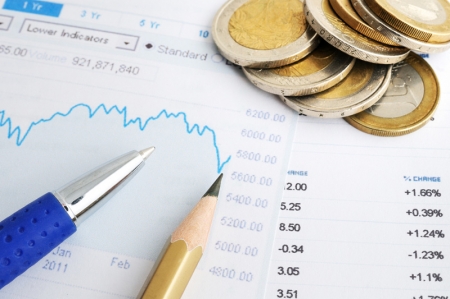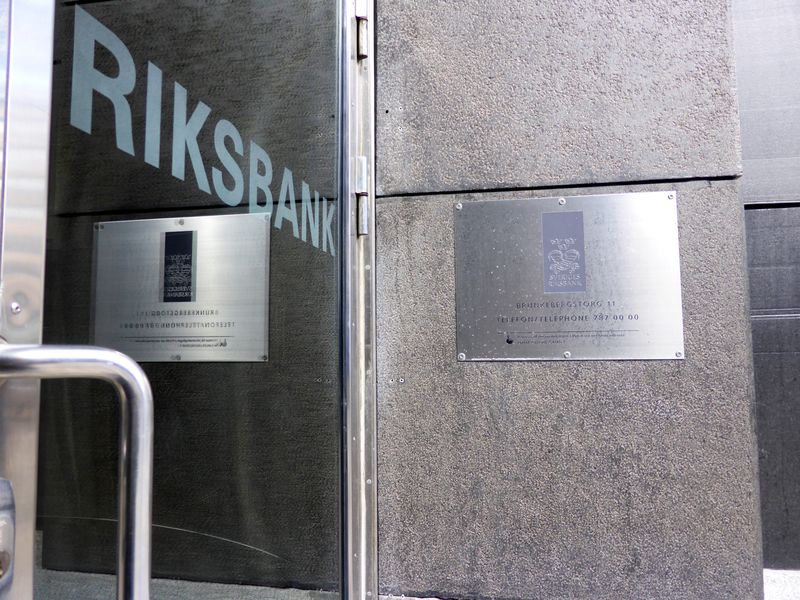Swedish central bank holds rates, flags cut in May or June

By Simon Johnson
STOCKHOLM (Reuters) -Sweden’s central bank held its key rate at 4.00% on Wednesday, as expected, and said inflationary pressures had eased enough for it to make the first of several policy rate cuts in the coming months.
Headline inflation is now close to the central bank’s 2% target, after peaking at over 10%, and is expected to keep falling.
Meanwhile, growth in large parts of the economy has ground to a halt and many households are struggling with mortgage payments at their highest level for more than 15 years.
“It is likely that the policy rate can be cut in May or June if inflation prospects remain favourable,” the central bank said in a statement.
The Riksbank said that it remained concerned about setbacks, not least the chance that easier policy could weaken the Swedish crown.
“Monetary policy should therefore be adjusted cautiously going forward, in the form of gradual cuts in the policy rate,” the central bank said.
The Riksbank forecast the policy rate at 3.44% in the fourth quarter.
“We are forecasting a first 25 basis point rate cut in May – though it could well be in June which would be after the ECB and Fed meetings – and three more before year-end,” said Andrew Kenningham, Chief Europe Economist at Capital Economics.
The Swedish crown weakened marginally against the euro after the decision was published.
On a trade-weighted basis the crown is around its weakest level this year against the euro.
With inflation seemingly tamed, central banks around the world are weighing up when to start easing policy. The Swiss National Bank was the first out of the blocks last week, with the U.S. Federal Reserve and the European Central Bank expected to follow suit in June.
In February, the Riksbank said rates had peaked and that it might be possible to ease policy in the first half of the year.
The last time the key interest rate was cut was in early 2016 when it fell to -0.50%, the lowest ever level.
Negative or zero rates lasted until 2022 when Russia’s invasion of Ukraine sparked a surge in prices and forced the central bank to ratchet up borrowing costs at a record pace.

Analysts in a Reuters poll had forecast no change in rates this month and for the central bank to flag a cut in May or June – the first of several seen this year.
The Riksbank announces its next monetary policy decision on May 8.


